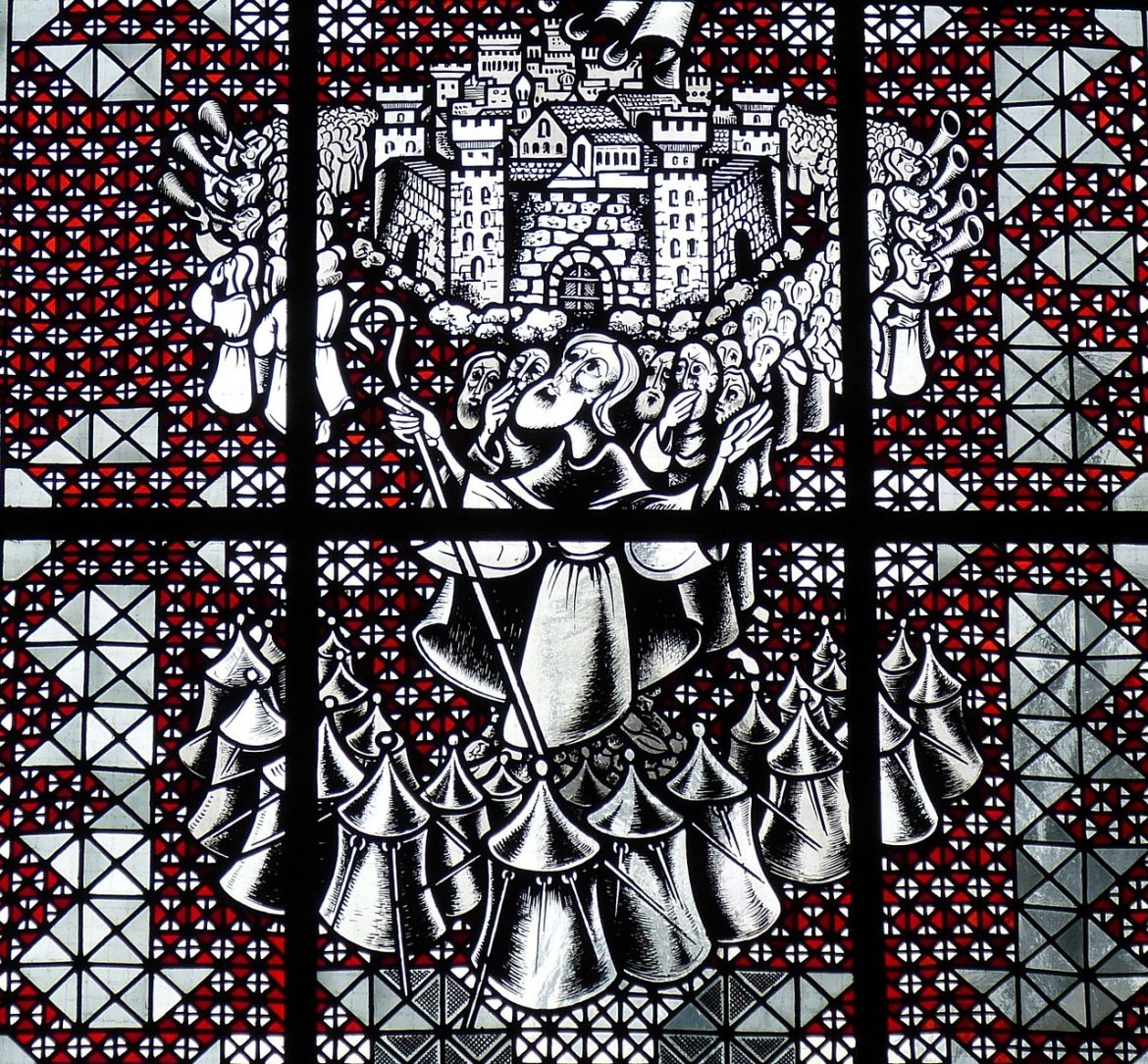Presented with the image of faith breaking down walls, one of the first things that comes to mind is the Battle of Jericho, won by an unlikely combination of perseverance, obedience and music. The Israelites needed no weapons beyond these to make the city walls of their enemy come tumbling to the ground. Sadly, of course, they did use their swords afterwards, but it was by faith that the barriers to victory were destroyed.
Christians who have won battles have often done so by obeying God with peaceful protest. Leaders like Reverend Dr. Martin Luther King and Josephine Butler understood the power of a righteousness that did not need to lift a weapon. Christians tend to be campaigners when it comes to fighting for social justice. We are in it for the long haul, because we understand that changing hearts and minds takes time, and the walls of these precious places will only break down and let in the compassion of Christ when they have been prayed for, and walked with and shown the glory and the music of God’s kingdom.
We are always showing the world what the alternative could be to the mess we are making.
The recent prevalence of focussing urgently and often vociferously on certain issues has been concerning to me. We seem to be looking for a fight and imagining that it is within our power to change a great deal quickly by raising our voices, not in prayer or music, not in impassioned, inspiring speech, or long, careful letter-writing, but in anger, in zeal, in self-righteousness, even in vitriol.
I am mostly bedbound these days as many of you know, so my main impression of this change comes from social media. I see people who love God leaving aside his methods and looking for quicker, more satisfying results. I see Christians virtue-signalling and boasting in things other than their weakness, and I see us acting largely as individuals instead of as a chorus.
I am concerned. “Social justice warriors” is a label many Christ followers seem eager to embrace. Good causes are surely what we are all about. Yet, Jesus spent precious little if any of his time protesting or petitioning, or urging people to support particular leaders. He simply loved. He certainly did not condone violence. The turning of the tables at the Temple does a lot of heavy-lifting here. My understanding is that this was a deeply meaningful act in the build up to his painful death, where he was given up entirely to the authorities.
Scripture urges us constantly to bless and deliver the poor, the sick, the needy, widows and orphans. Those on the side-lines, the discarded and the weak. These were also the ones, along with those labelled sinners, to whom Jesus showed the most compassion and grace in his time on earth. Now we seek different labels and are in danger of missing who the real outcasts are. We follow the crowd and the media when they tell us certain groups are disenfranchised or vulnerable, without thinking for ourselves, and our leaders go along with this.
We need to be wiser, dear friends. We need to stop running after cultural bandwagons. We need to remember some truths. That it is still the poor, the sick, the needy, the widows and orphans who need our help, of whatever colour or creed. That postmodernism and its fads and terminology do not speak for us nor determine what love is, and as far as I can see, end up dividing us more than uniting us.
Most of all, we need to remember that we should be helping and loving one another as a team and for the long-term. This is the thing that I find the strangest. That so many people want to be “history makers,” known for changing the world. This message rooted in individualism is foisted on us again and again. I see it all the time in children’s books now. Yes, it is good to be inspired by saints and those who fought for change. But most of us are not Dorothy Day or Mother Teresa, and they would be the first to say they would have managed nothing without God and without their supporters and sisters and brothers.
It can take a long time and much work to bring worthwhile change. Yes, we need to be giving to good causes and making informed choices. But most lasting good will come from prayer, as well as from electing (or being) good leaders and working for well-considered and planned legislation.
We have other callings to remember. Not all of us are Christ’s hands. Some of us are hearts, or eyes, some of us are here to pray, to love, to heal, to see, to create, to raise families as well as awareness. Some, even to speak loving correction to the Church in prophecy.
Activism is just a fashionable word for what we as the Church should be doing in our communities already. The kind I see online seems to be spoiling for a fight, raging at the status quo, instead of discerning the best way forward, being gently compassionate, or thinking in the long-term beyond our own small lives.
I see that we are too often seeking to offer fealty to flags and firearms, kings and countries, instead of rallying around the life of sacrificial love to which we are called.
Can we take a moment, now and then, perhaps, to tune our trumpets to heaven’s notes of grace before we fall in line to play the world’s songs? To look to our prophets for guidance? To step back from the walls the world tells us need to fall and ask God to help the scales first fall from our spiritual eyes that we might see as he does? To do these things before we act, and not rush in with the gall to think we have all the answers, instead nurturing the balm in our hearts that we might give out in good time as medicine to an ailing world?
 Preparing for the Garden Walk of Holy Week
Preparing for the Garden Walk of Holy Week
In the last few days of his life, Jesus moved from garden to garden from suffering to resurrection.
Join Christine Sine for a Lent retreat that reflects on this journey and prepares for the challenging week that follows Palm Sunday.

